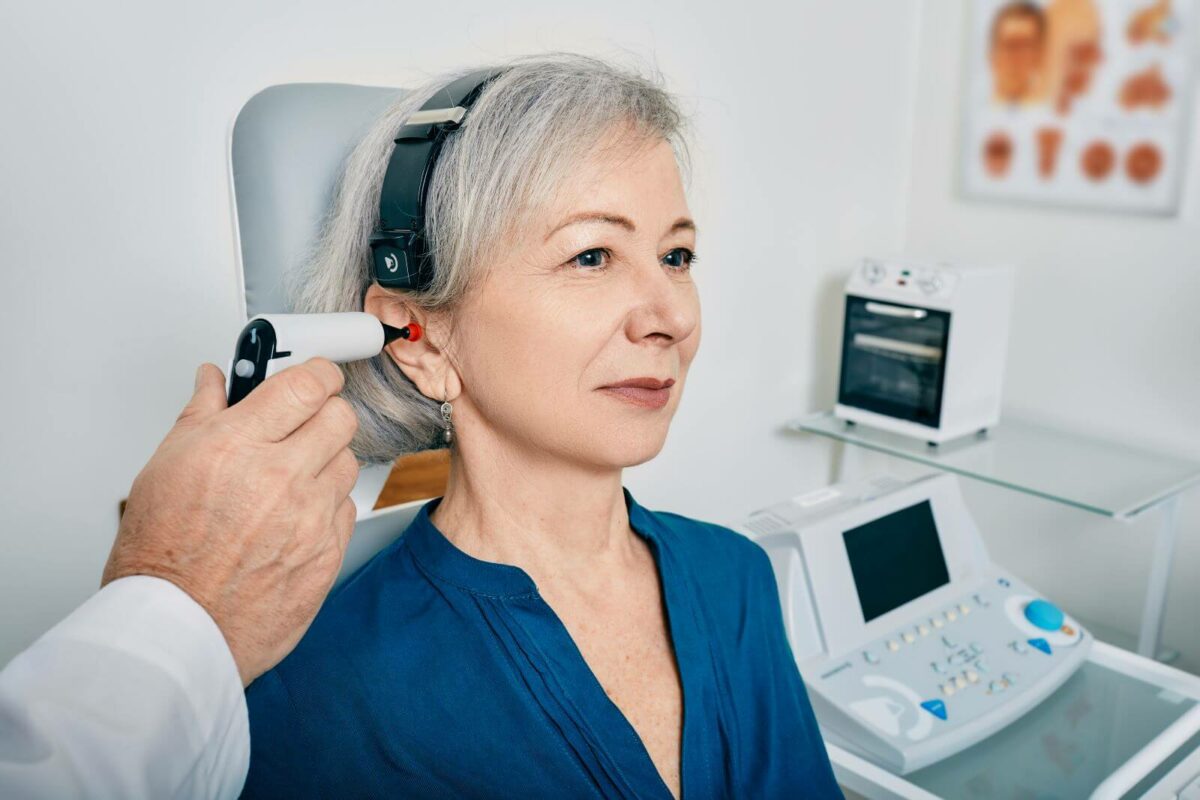- Are Cochlear Implants Worth It? - June 6, 2025
- Tips for Using Hearing Aids in Different Environments - May 27, 2025
- Rechargeable Hearing Aids vs. Battery-operated Hearing Aids - May 16, 2025
Age-related hearing loss is a common condition that affects millions of people around the world. It’s a gradual decline in hearing ability that occurs as people age, and it can significantly impact a person’s quality of life. Sadly, age-related hearing loss is often untreated, leaving people struggling to hear and communicate with others. In this blog post, we will explore why age-related hearing loss goes untreated and the consequences of neglecting hearing health. We will also discuss the diagnosis, treatment, and prevention of age-related hearing loss, highlighting the benefits of early treatment.
Causes of Age-Related Hearing Loss
Age-related hearing loss can be caused by various biological, environmental, and lifestyle factors. It’s often the result of the gradual wear and tear on the auditory system over time. Exposure to loud noise, certain medications, and underlying health conditions like high blood pressure or diabetes can also contribute to age-related hearing loss.
Symptoms of Age-Related Hearing Loss
Mild hearing loss can manifest as difficulty hearing soft sounds, understanding speech in noisy environments, or hearing high-pitched sounds. Moderate hearing loss can make it challenging to understand conversations, especially in noisy situations. Severe hearing loss can cause people to miss out on important sounds, like the doorbell or phone, and can lead to social isolation.
Consequences of Untreated Age-Related Hearing Loss
Ignoring age-related hearing loss can have serious consequences, both physically and emotionally. Social isolation is one of the most common issues associated with untreated hearing loss. Communication becomes more challenging, leading many people to withdraw from social situations. Cognitive decline is another consequence, as hearing loss can lead to brain atrophy, making it difficult to process information. Depression and anxiety are also commonly associated with hearing loss, as people become frustrated with their inability to hear and communicate with others.
Reasons for Untreated Age-Related Hearing Loss
There are several reasons why people may not seek treatment for age-related hearing loss. One of the primary reasons is a lack of awareness. Many people believe that hearing loss is just a part of aging and don’t realize that there are effective treatments available. Stigma is another factor, as people may feel embarrassed about wearing hearing aids or admitting they have a hearing problem. Financial barriers can also prevent people from seeking treatment, as hearing aids and other hearing devices can be expensive.
Diagnosis and Treatment of Age-Related Hearing Loss
If you suspect you may have age-related hearing loss, it’s important to seek an evaluation from a hearing health professional. An audiologist can perform a hearing test to determine the extent of your hearing loss and recommend the most appropriate treatment. Hearing aids are the most common treatment for age-related hearing loss, and they come in a wide range of styles and technology levels to suit different lifestyles and budgets. For people with severe hearing loss, cochlear implants may be a more effective option.
Prevention of Age-Related Hearing Loss
While age-related hearing loss may be inevitable, there are steps you can take to reduce your risk or delay its onset. Limiting your exposure to loud noise is one of the most effective ways to prevent hearing loss. Wearing earplugs or other hearing protection when you’re in noisy environments like concerts, sporting events, or while using power tools can protect your ears from damage. It’s also important to have regular hearing check-ups, just like you would have regular eye exams or dental check-ups.
Age-related hearing loss is a common condition that affects millions of people worldwide. Sadly, it often goes untreated, leading to social isolation, cognitive decline, and other serious consequences. Seeking treatment for hearing loss can dramatically improve your quality of life and prevent further hearing loss.
At our hearing practice, we offer a wide range of hearing solutions to suit different lifestyles and budgets. If you’re experiencing hearing loss or have any concerns about your hearing health, we encourage you to book an appointment with us. Our hearing health professionals can perform a comprehensive hearing evaluation and recommend the most appropriate treatment to help you hear better and live your life to the fullest. Take the first step towards better hearing and book your appointment with us today!

